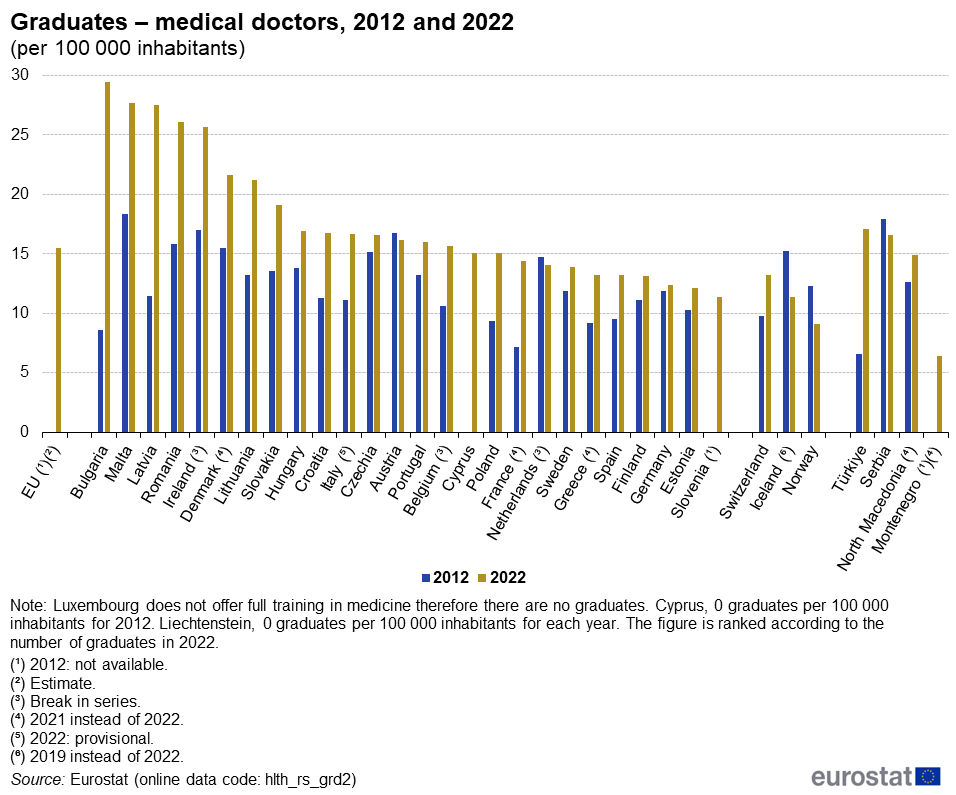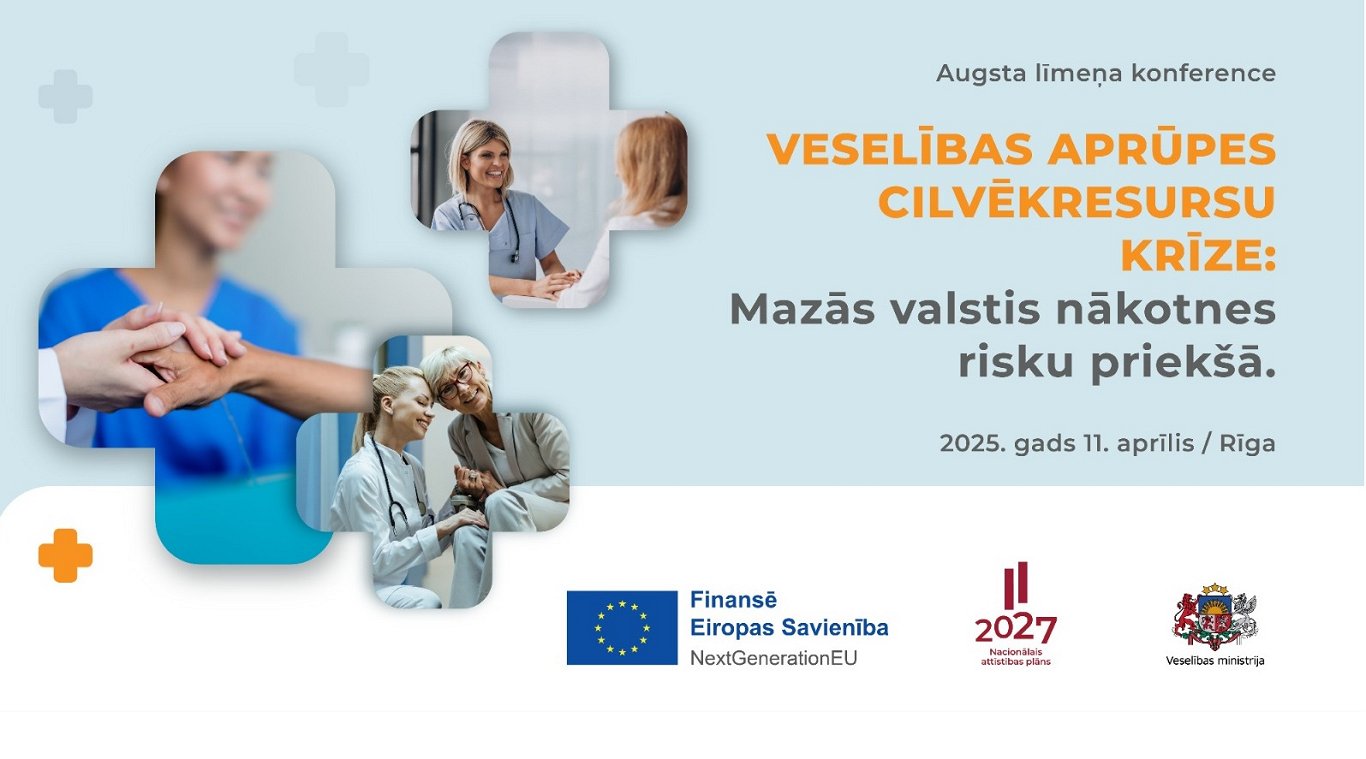Overall, Latvia lags behind in European comparisons – there is a relatively small number of doctors and a pronounced shortage of nurses. Preparing new professionals is also a big challenge, as young people choose other, better-paid and more prestigious professions that do not require such lengthy studies.
Latvia is not unique in this – it is facing a human resources crisis not only here, but throughout Europe, as society ages and the new generation is unable to meet the needs of the healthcare system. The number of chronic patients is growing rapidly and the workforce is shrinking at the same time.
In fact in some ways Latvia is doing quite well in comparison with EU peers. In 2022, there were an estimated 15.5 medical doctors graduating in the EU for every 100 000 inhabitants. The highest ratios were recorded in Bulgaria (29.5 per 100 000 inhabitants), Malta (27.7 per 100 000 inhabitants), Latvia (27.5 per 100 000 inhabitants), Romania (26.1 per 100 000 inhabitants) and Ireland (25.7 per 100 000 inhabitants).

Photo: Eurostat
Currently, the health sector is working in an overloaded mode. The situation is particularly acute in the Latgale region, Latvia’s poorest. The population of Latgale is decreasing, and young doctors are reluctant to work there, said Health Minister Hossam Abu Meri (“New Unity”).
Latvia’s goal is to provide healthcare that can serve people. Artificial intelligence and telemedicine solutions can help here, but they will never be able to completely replace humans, because first there must be people who learn these tools and include them in the healthcare system.
Kristīne Kļaviņa, Head of the Sector Human Resources Development Department of the Ministry of Health, hopes that digital solutions could encourage young people to choose a future in healthcare.
Last year’s data shows that in Latvia, among medical professionals, more than 8 thousand employees were aged 60 to 64. The younger generation under the age of 29 in the health sector is represented by just under 7 thousand doctors. The data shows that by 2030, Latvia could have a shortage of 2.4 thousand medical workers.
The Ministry of Economics plans to create new programs that could encourage young people to choose the medical field. The ministry also pointed out that raising the retirement age threshold might not be the right solution, as people’s health is deteriorating, which often requires long and expensive treatment. However, it is possible that some programs could be created that would encourage people to stay in their profession longer in order to gain the time needed to train new specialists.
Konferences tiešraide / live stream of the conference
